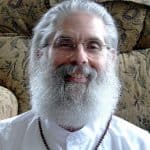Historians tell us that from the fall of the Roman Empire in the 6th century until the rise of the Italian Renaissance in the 14th century, Europeans lived in a culturally impoverished Dark Age. It was a time filled with rumor, fear, idle gossip, the slow deterioration of educational standards and the diminishment of craft and arts. Does any of this sound familiar?
As we begin 2012, many might conclude we are now entering a similar Dark Age. A recent poll commissioned by The Hill Newspaper in Washington, D.C. found sixty-nine percent of respondents believe that the United States is in decline; that the future appears perilous. Eighty-three percent are worried about where America is going as a civilization, and whether we have access to any light to give other people, much less to ourselves. Survey the landscape, and you’ll certainly find issues that warrant concern. Millions of people are unemployed. The bloated national debt continues to depress the economy. Congressional leaders lack the courage, will and wisdom to reach concensus on any meaningful legislation. Our 15-year-old high school students now rank 14th in the world in reading skills, 17th in science and a staggering 25th in mathematics.
Today’s instant access to 24 hour cable news and the internet has brought a flood of gossip, rumor and celebrity stories that can drown out the quiet voice of Truth. The internet tells us whatever we want to know. We rarely seek to discover and employ the Truth of anything through our own personal experience. To form our opinions, we’re content to rely on TV’s talking heads, the power of our favorite search engine and a few key words––even if they are spelled inkoreckly.
“Information” received from others can be helpful but does not have the authority of an experienced Truth. Without the power of self-discovered Truth, it is impossible to responsibly fashion mere information into a beneficial force. It is Truth alone that can unerringly tell us what to do and what not to do. Without reliable access to Truth, we uncritically accept the latest fad or story of the moment. Do any of us need to be reminded that 70% of Americans believe UFOs are the vehicles of extra-terrestrials, and that an equal percentage believe JFK was the victim of an assassination conspiracy carried out by organized crime?
Over many decades we have grown to accept information passively and uncritically. In doing so, we have begun to forsake that unique quality that separates human beings from the rest of the animal species: the discriminative faculty of our minds. From the 1900s on, the camera, phonograph, radio, movies, television and now the computer and internet have transformed us from active, discriminating performers into passive, herd-like listeners. In many cases, as we’ve gained more information, our lives have only become more burdened and unsatisfying. Modern electronic gadgetry has delivered convenience and entertainment, but it has also contributed to a pacification of the human spirit.
The information culture that celebrates short-term pleasure and quick answers can educate us to a point, but it also has diminished our human drive to discover and apply the enlightening Truth that can solve our everyday problems. Today, we don’t repair our old appliances because our hypnotized culture has accepted the idea that it’s cheaper to throw them out and buy new ones. Most of our reading is confined to textings, tweets, poorly crafted emails, TV schedules, movie timetables, and magazines or books about politicians and celebrities made infamous by television. Schools no longer require us to compute complex mathematical problems. Instead, we rely on our ubiquitous hand-held calculators. We are no longer encouraged to master the elegant logic of grammar, the excellence of spelling or the true meaning of words and language. Instead, we’ve become dependent on computer software programs to do all this for us.
Despite today’s remarkable medical, scientific and technological miracles, many of us see a troubling darkness in modern life. The darkness that inhibits us from fulfilling the noble purpose of our lives is a reminder of the words of Robert Kennedy, “There are those who look at things the way they are, and ask why. I dream of things that never were, and ask ‘Why not?’” If you’re one of those who dream of things that never were and ask why not, you are already eminently qualified to turn the darkness into light. But before you begin that task, remember that there are two kinds of knowledge: lower knowledge (apara vidya) and higher knowledge (para vidya).
The lower knowledge, apara vidya, is received indirectly, as information or hearsay from outside sources. Generally, our mother is our first teacher, then our father and siblings. Later we learn from our extended family of uncles, aunts and cousins. As we grow, we learn from playmates, school teachers, books, the internet, television and other conventional methods of education. This lower knowledge is far-reaching and a worthy form of knowledge for it includes the sciences, arts, commerce, management and technology. But this knowledge is considered “lower” because none of it is learned independently. It all represents our acceptance of other people’s ideas and concepts. No doubt, when applied in the world, lower knowledge can make us outwardly successful and prosperous. However, it cannot bring contentment nor liberate us from the darkness of painful, unintended consequences that follow decisions made without the light of Truth.
In his famous essay of 1784, “What Is Enlightenment?,” the German philosopher Immanuel Kant wrote, “Enlightenment is man’s release from his inability to make use of his own understanding without direction from another.” Then in his next breath, Kant answered the question in his essay’s title with the battle cry, “Sapere aude! Use your own reason!”
Para vidya, the higher, revealed Truth (received through personal experience), is the yogic name of the enlightenment that Kant spoke of in the 18th century. It is a profound, eternal Truth that automatically enlightens the individual’s creative force in direct proportion to one’s willingness to forsake habits that conflict with her or his own inner, intuitive wisdom. It is always considered to be the highest knowledge because it exists beyond the relativity of the phenomenal world’s ever-changing circumstances. Such Truth triumphs over the personality’s superimposed fear, anger and attachment that previously made it impossible to see solutions clearly and to muster the will power necessary to serve those solutions.
For most of us, the Truth remains obscured by the seemingly impenetrable veil of our thoughts, desires and emotions that arise as we deal with the vital issues of the day. It is only by the higher knowledge that our identification with the informational ignorance of family, friend, teacher, race, religion, gender and tribe can be set aside. This is the genius of Yoga Science. By applying the wisdom of para vidya in everyday relationships, we prove the abstract, philosophical Truth. That Truth provides the clear vision we need to act skillfully in the world––employing whatever form of lower knowledge is appropriate to meet our challenge of the moment.
The truly wise women and men in every generation have sought to know the Truth directly. They were not satisfied with the unexamined, convenient opinions of others, nor were they moved by any clique’s subtle and not-so-subtle psychological power of persuasion.
Direct experience is the ultimate test of the validity of knowledge. Because most of our ideas have come from others, we remain uncertain of their validity and continually seek confirmation from friends, colleagues and so-called experts. But someone else’s opinion is no test of the Truth. The Truth needs no external support. As long as we doubt, it means that we have not yet discovered the Truth. Only by experimenting with Truth in thought, word and deed in the midst of our everyday relationships do we come to gain Self-confidence and Self-reliance.
How and where does the process of experimenting with Truth take place? In your mind––your most powerful instrument.
The human conscience, or buddhi, acts as a mirror. Unlike the senses, ego or unconscious, the buddhi (when purified through continuous usage), can reflect Truth from the intuitive library of wisdom that exists at the center of consciousness. The more often we sacrifice old habits that conflict with the Truth brought into our awareness by the
buddhi, the more our reserves of energy, will power and creativity increase. Then, solutions will naturally arise for each and every difficulty we encounter.
Recognizing that only the buddhi (conscience) has this power to reveal the higher knowledge of Truth through the instrument of mind, ancient sages formulated a sacred prayer known as the Gayatri Mantra to awaken, strengthen and purify the buddhi’s discriminative faculty.
Aum Bhur Bhuvaha Swaha,
Tat Savitur Varenyam.
Bhargo Devasya Dhimahi,
Dhiyo Yo Nah Prachodayat.
O Divine Mother, my heart is filled with darkness. I pray You will remove this darkness and bring the illumination of Supreme Truth by stimulating my discrimination.
To successfully deal with the plethora of information we have available to us, we need to increase our intelligence, concentration, memory and capacity to use information wisely. The words of the Gayatri Mantra instruct and motivate us to think and act much more creatively than ever before––not as limited, habituated, individual human beings, but as a part of the One, holistic, cosmic intelligence.
The encouraging news is that each one of us can access the Divine Light of consciousness that endows us with a profound understanding of who we are, from where we have come, why we are here, what is to be done and where we will go. When we regularly use the buddhi to recognize Truth and employ that far-reaching Light of higher wisdom in thought, word and deed, we discover the creativity and will power that solve all our problems. This process of turning the darkness into Light is not some fancy of imagination. It is a practical, scientific, reproducible methodology for experiencing peace, health and happiness.
About the author

Leonard Perlmutter (Ram Lev)
Leonard is an American spiritual teacher, a direct disciple of medical pioneer Swami Rama of the Himalayas, and a living link to the world’s oldest health and wisdom spiritual tradition. A noted educator, philosopher and Yoga Scientist, Leonard is the founder of the American Meditation Institute, developer the AMI Foundation Course curriculum, and originator of National Conscience Month. He is the author of the award-winning books The Heart and Science of Yoga and YOUR CONSCIENCE, and the Mind/Body/Spirit Journal, Transformation. A rare and gifted teacher, Leonard’s writings and classes are enlivened by his inspiring enthusiasm, vast experience, wisdom, humor and a clear, practical teaching style. Leonard has presented courses at the M.D. Anderson Cancer Center, numerous medical colleges, Kaiser Permanente, the Commonwealth Club of California, the U. S. Military Academy at West Point and The New York Times Yoga Forum with Dean Ornish MD.

